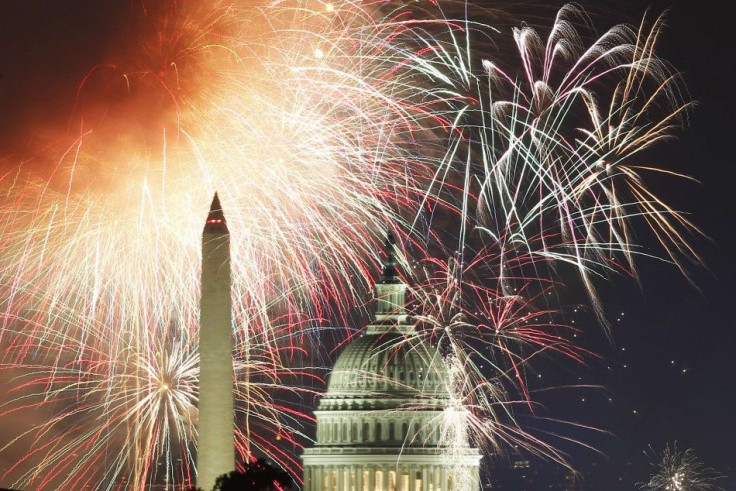America: Number One In Wealth, Richer Than The Next Four Nations Combined

Here's something to stoke some patriotism ahead of Independence Day. America remains the world's richest country, with more wealth than the combined treasures of the next four richest nations -- Japan, China, Germany and the UK. And most of its wealth comes from the potential of its people.
While that might sound like the kind of platitude a politician might claim behind a flag-draped podium this Fourth of July, it's actuallys the assessment of a recent United Nations study. The 336-page Inclusive Wealth Report, put together by the U.N. University and the U.N. Environmental Programme, tabulated the wealth of nations by including not just the economic output potential and asset capital bases of various countries, but also their mineral wealth and human capital. The report, which applied the methodology to dozens of countries, also looked at other hard-to-measure assets that are rarely taken into account when the national riches are considered, like quality of ecosystems and water resources.
It tabulated the inclusive wealth index of the U.S at around $117.8 trillion in 2008. That number exceeds the combined figures for Japan, China, Germany and the UK, ranked respectively at $55.1 trillion, $19.9 trillion, $19.5 trillion and $13.4 trillion. It fell just shy of also being able to incorporate the wealth of the next-richest country, France's $12.9 trillion. About 75 percent of America's wealth was deemed as coming from its human capital, a high percentage that was exceeded only by a few highly developed European nations.
The report that found America plentiful from sea to shining sea was designed not with the United States in mind, but as a way to more accurately account for the economic growth in countries rich in mineral resources to determine if such progress was sustainable under certain parameters.
The tidbit on U.S. wealth, however, flies in the face of perceptions from recent polls surveying national attitudes, which found most people believe the U.S. is headed in the wrong direction economically and about to be overtaken by China.
A recent NBC News / Wall Street Journal poll reported that 61 percent of Americans believe the country isn't headed in the right direction. That rate, while not as high as the record 78 percent reached during the worse of the financial crisis of 2008, is considered very high by historical standards.
Similarly, a Pew Research survey released in June found that more Americans believed China was the world's leading economic power over the U.S., by a ratio of 41 to 40 percent.
(In China, interestingly, perceptions are reversed. The Pew Research poll found 48 percent of respondents in that country believe the U.S. to be the world's leading economic power, compared with 29 percent who said the same thing about their own nation.)
The pessimistic view has permeated deeply into popular culture. A scene from a new TV show by U.S. screenwriter Aaron Sorkin, The Newsroom, went viral after showing a fictional news anchor delivering an angry monologue about how America is no longer the greatest country in the world.
We're seventh in literacy, 27th in math, 22nd in science, 49th in life expectancy, 178th in infant mortality, third in median household income, number four in labor force, and number four in exports. We lead the world in only three categories: number of incarcerated citizens per capita, number of adults who believe angels are real, and defense spending, where we spend more than the next 26 countries combined, 25 of whom are allies, the fictional newscaster says in the show's opening scene.
America is not the greatest country in the world anymore, the character enthuses. It sure used to be
© Copyright IBTimes 2024. All rights reserved.





















